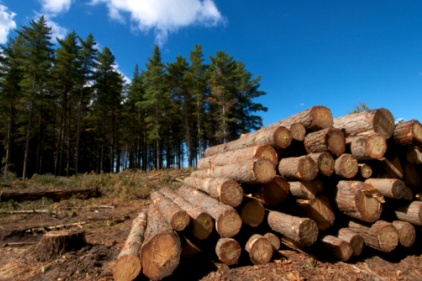A proposed bill that would allow some teenagers to work in the logging industry is drawing opposition from safety advocates.
House Bill 1215 was introduced to a congressional committee last month by Sen. James Risch (R-Idaho). The bill, called the “Future Logging Careers Act,” would allow 16- and 17-year-olds to be exempt from child labor laws if they work in logging or mechanized operations under parental supervision. At present, children of logging families are not allowed to work with equipment and learn the trade until they are 18.
Family-owned businesses
The American Loggers Council says the bill would help to ensure that the sons and daughters of family-owned timber harvesting businesses are able to follow in the footsteps of their parent.
“Like farming and ranching, the timber harvesting profession is often a family run business where the practice and techniques of harvesting and transporting forest products to receiving mills is passed down from generation to generation. Timber harvesting operations are similar to family farms with sophisticated and expensive harvesting equipment that requires young men and women to learn how to run the business, including equipment operation and maintenance, prior to the age of eighteen.”
The Council points out that the bill excludes the manual use of chain saws for felling and processing timber as well as operating cable skidders, which are not considered operations in a mechanized timber harvesting operation.
High injury rates
The American Industrial Hygiene Association (AIHA), however, says the activities allowed by the bill are too dangerous, and said logging – and tree trimming – comprise some of the highest injury and fatality rates nationwide.
“These are dangerous jobs even for seasoned workers; employing young and inexperienced workers only exacerbates the risk of serious on-the-job injuries,” wrote AIHA President-elect Daniel H. Anna, PhD, CIH in a letter to Congress.
“AIHA is aware that other sectors, including the agriculture industry, enjoy regulatory exemptions that allow family members between the ages of 16 and 17 to work under the parents’ supervision. Unfortunately, the agriculture industry also suffers from very high occupational injury and fatality rates. According to the National Institute for Occupational Safety and Health (NIOSH), on average, 113 youth less than 20 years of age die annually from farm-related injuries, with 34% of these deaths occurring to youth 16-19 years of age.”
Anna said the cost of injuries resulting from the bill could outweigh any of the positive economic gains.
This committee will consider the bill before possibly sending it on to the House or Senate as a whole.


